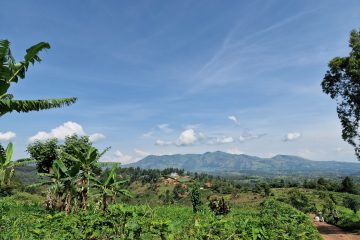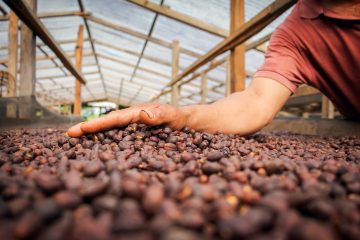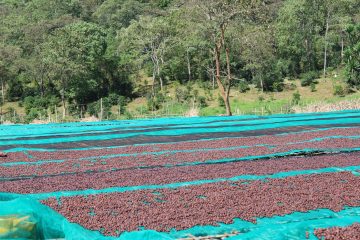It’s no secret that Burundi can be a tricky origin, especially for milling, internal logistics and shipments etc. Even if some of the coffees last year were tasting amazing they came later than expected. I have to admit that we were in doubt this year if we were going to continue because of the logistical issues, but with a great dialogue with the producer Salum we agreed on a different strategy to get it all moved and executed faster.
But then, politics. Bollocks! Presidential elections, change of constitution and riots. And again we were not certain if we were going to make it this year after all, or if we were willing to take the risk. But we decided that maybe it is more important than ever to support the farmers and try to actually pull it through, and we did. The coffees have already arrived in Europe, and on top of that they had a really good year both in terms of volumes and quality.
10 good reasons to buy NA coffees from Burundi
- Unique and distinct flavor profiles on all the coffees selected by NA.
- The producer and the farmers are getting good premiums for the coffees, way above the fairtrade prices. And they need it to invest in their farms, households, and their children’s education.
- The lots are selected based on their cupping scores among hundreds of cups.
- We are cupping coffees based on daily production lots, and are separating micro lots, or blending them as we want, and know where and when they are produced.
- By buying these coffees your supporting local communities and about 1000 smallholders in the local areas, as well as a school.
- Basically all coffees are grown organically by default, as the farmers are not investing in fertilisers.
- The producer is investing in equipment and strict quality control for processing the cherries, as well as an environmental and sustainable coffee production.
- Through great relations and good partnerships we are in control of the milling and logistics. Meaning the coffees will be well sorted, graded and fresh.
- As it’s hard to source there and get coffees out, good Burundians are still hard to come across. Meaning when your able to get the good ones you will widen your range of exotic coffees and distinguish yourself from your competitors.
- The reason for NA working in Burundi in the first place is because we see it has great flavor potential. It’s also a great challenge to source and get coffees out of there. You have to put a lot of effort and travel in to it, but we definitely see it’s worth it. Burundi is an extremely poor country and we, as importers and you as roasters, can benefit from their amazing coffees. But the Burundian coffee growers also needs us and the premiums, support and the income that the coffee trade is creating.
Salum Ramadhan
We are currently having one project going that we can scale up the next few years. It is basically through one producer, Salum Ramadhan, that’s having two washing stations in the Kayanza region, north in Burundi on the border to Rwanda. The coffee is coming from hundreds of smallholders surrounding the wetmills, and Salum also sees a lot of value in supporting the local communities. He’s creating employment, has built infrastructure for the locals, giving out seedlings, has donated land for a school as well as supported it financially. This, together with the premiums and second payments for the coffees, is to encourage the farmers to increase the quality in their farms and pick better cherries during harvest. And that will again be beneficial to all of us.
The different lots and coffees we have are from the two washing stations Buziraguhindwa and Mbirizi. But in many cases they will be named by the hillsides of where the cherries are collected. But they will, except from some experiments, more or less be processed the same way. It’s fully washed before sun dried on African beds.




What do you get when your buying Burundian coffees through NA:
- Coffees grown in altitudes between 1700 and 2000 meters above sea level in Kayanza.
- The coffees are from different Bourbon cultivars. And grown by hundreds of smallholders in the local hillsides. Each of the farmers normally have only some hundred trees each.
- The coffees are generally grown and cultivated without any pesticides or chemical fertilizer.
- The smallholders sell their red and mature cherries to our producer Salum, the owner of the washing station.
- All cherries are going through a strict program of selection and quality control after picking and are hand sorted for under-ripes and floated for over-ripes before they are entered in to production.
- The coffees are mechanically de-pulped by a McKinnon disc pulper to remove skin and fruit. It is then graded by density, dry fermented for 12-16 hours to remove mucilage, washed in channels and graded by density again before it is soaked under clean water over night. This takes about two days.
- After soaking parchment is moved under shade for skin drying and hand sorting of defects to remove potential potato issues.
- It’s then moved again to the drying tables. Layers are adjusted to get even drying with a lot of rest and conditioning, and will take 15-25 days. The parchment is continuously moved and hand sorted during the day. And piled up and rested under cover during hard sun at mid day and at night.
- We can guarantee good storage conditions, traceability and lot separation by day of production after it’s processed and dried.
- Strict quality control during dry milling, grading and sorting. Our producer have he’s own staff monitoring dry milling and preparation for export.
- As the producer have a background in the transport sector, and still have he’s own trucks we can now guarantee efficient transport with minimal delays in ports like Dar es Salaam with bad climate and storage conditions.
- We bought about 12 different lots from Salum this year. The lot sizes mainly varies from 20 – 100 bags They are mainly given names by the Collin (hill) where they are grown such as Muruta, Nkonge, Campazi etc. But in a few cases it’s named by the washing station Buziraguhindwa or Mbirizi. In that case the coffees are collected in different areas. Each lot will represent coffees from a good number of smallholders. Salum is generally working a lot with encouraging the farmers to deliver premium cherries, and as there is competition in the areas he’s attracting farmers and are giving incentives by paying well above the currant market prices.
The first container is here already, and the second is on its way. This is definitely a record in getting in Burundians early. We are happy to get these great coffees out in the market soon and are looking forward to your feedback.
Last year we made a short film from the washing station Buziraguhindwa that you can see here:


